Day 1 :

Biography:
Sorin Buga MD is an Associate Clinical Professor in the Department of Supportive Care Medicine at City of Hope, Duarte, California. He is board certified in internal medicine and hospice and palliative medicine and a fellow of the American College of Physicians and of the American Academy of Hospice and Palliative Medicine. He completed his fellowship in palliative medicine at H. Lee Moffitt Cancer Center in Tampa, Florida. He is the City of Hope’s representative on the NCCN Adult Cancer Pain Panel and an active member of the American Academy of Integrative Pain Management, the American Academy of Hospice and Palliative Medicine, the International Association for Hospice and Palliative Care and International Association for the Study of Pain. He has published in the peer review literature and is often invited to speak at scientific meetings.
Abstract:
Physician assisted suicide is a controversial topic in medical and oncological field with very few countries decriminalizing this aspect of medical care.
End of Life option Act ( EOLOA ) came into effect in June 2016 making California the 5th American state to accept such end of life option but legislation requires the clinician to follow very strict rules when evaluating patients for EOLOA.
City of Hope, a cancer institution with NCI designation, after consulting with all staff physicians decided in 2017 to participate in EOLOA and several patients have requested the aid in dying drugs (AIDD).
This presentation will outline the general state and institutional requirements for EOLOA followed by a few case presentations.
- Workshop
Session Introduction
Yvonne Heath
Author of Love Your Life to Death, Canada
Title: Love Your Life to Death: Exploring the 7 take aways so you can live well, grieve well, die well. and teach others to do the same.

Biography:
As a Registered Nurse for 30 years, working in United States and Canada, Yvonne has witnessed our society’s death phobia and our reluctance to talk about, plan prepare for grief; causing excessive suffering. Her new purpose?
To empower compassionate communities and professionals to live life to the fullest, learn to grieve and support others and have “The Talk” about end of life… long before it arrives and diffuse the fear.
Yvonne shares her message—with heart and humour— using intelligence, empathy and genuine uplifting spirit, to combine a powerful mix of personal insights and lessons. Yvonne demonstrates how we can live well, die well, and transform our world into a happier place. Yvonne is the Founder of the I Just Showed Up movement (Teaching people of all ages to show up for themselves and others, so they are empowered and resilient when grief arrives) and Love Your Life to Death.
Abstract:
As a follow up discussion to Yvonne’s plenary I Just Showed Up, we explore the 7 Take Aways further and discuss in the detail the things we can do as medical professionals both personally and professionally. How do we grieve? What is self care? Why have we become scared of Death? What is your legacy as a
Do you avoid those hard conversations or situations?
Why should we change? Why do we need to do better? Why? Because… Grief shows no mercy. It arrives unannounced and uninvited. It does not care what else you are going through and it does not care if you’ve had enough. Everyone grieves—regardless of age, race, culture, gender, sexual orientation or economic situation; Divorce, diagnosis, mental health issues, financial stress and yes, facing end of life.
The 7 Take Aways are the culmination of my learning in 30 years of nursing and in interviewing hundreds of people. Living by these principles, you will learn to live well, grieve well and die well—and teach others to do the same.
The 7 Take Aways
The best time to talk about, plan and prepare for grief is when we are young and healthy. The Next Best Time is Now!
It Takes a Village to support: the ill, the caregiver, the dying, the bereaved and each other. When someone is grieving,
Just Show Up! To be empowered, resilient and compassionate,
Show Up For Yourself First! Structure Your Life in such a way that you are self-reliant. (and so are the people surrounding you.
Find your Post, and hold onto it.
What will Your Legacy be?
- Hospice and palliative care | Palliative Care and End of Life | Palliative Care Nursing | Palliative Care and Geriatrics | Palliative Care in Oncology | Palliative Care and Spiritual Care
Session Introduction
Denise Serrano-Eanelli
New York Medical College, USA
Title: Electronic medical orders for life-sustaining treatment (eMOLST) in New York state: Length of Stay, Direct Costs

Biography:
Denise Serrano-Eanelli is a doctoral candidate from New York Medical College, Department of Health Policy and Management. She has a Master of Public Health degree from Dartmouth College, NH and a Master of Science degree from University of New Haven, CT. She is a Registered Dietitian.
Abstract:
In the United States, approximately 20% of patients die during a hospitalization having an ICU stay with critical care costs exceeding $82 billion annually, accounting for 13% of inpatient hospital costs. Treatment of sepsis is listed as the most expensive condition in US hospitals, costing more than $20 billion annually. No study to date has looked at the effect of palliative care and advanced care planning on intensive care unit (ICU) costs in the short term and long term using direct variable, direct fixed and indirect ICU costs. Electronic medical orders for life-sustaining treatment (eMOLST), following the POLST paradigm, is carried out in New York State. Our aim was to investigate the impact of signing an eMOLST form on length of stay and direct costs in the intensive care unit. Outcome measures of this retrospective chart included length of hospital stay, total direct costs, ICU costs, and palliative care consultation for patients >65 years of age, admitted into the ICU and having a diagnosis of sepsis. Independent samples t-test were used to test for significant differences between those who had and not signed the eMOLST form on total direct costs, ICU costs, and length of stay in the hospital. Patients who signed the eMOLST form had significantly higher total direct and ICU costs, and had a significantly longer length of hospital stay. Signing an eMOLST form does not have a positive fiscal impact on direct hospital costs or reduce the overall length of patient stay.
Yvonne Heath
Author of Love Your Life to Death, Canada
Title: I Just Showed Up: Teaching people of all ages to show up for themselves and others, so they are empowered and resilient when grief arrives.

Biography:
As a Registered Nurse for 30 years, working in United States and Canada, Yvonne has witnessed our society’s death phobia and our reluctance to talk about, plan prepare for grief; causing excessive suffering. Her new purpose?
To empower compassionate communities and professionals to live life to the fullest, learn to grieve and support others and have “The Talk” about end of life… long before it arrives and diffuse the fear.
Yvonne shares her message—with heart and humour— using intelligence, empathy and genuine uplifting spirit, to combine a powerful mix of personal insights and lessons. Yvonne demonstrates how we can live well, die well, and transform our world into a happier place. Yvonne is the Founder of the I Just Showed Up movement (Teaching people of all ages to show up for themselves and others, so they are empowered and resilient when grief arrives) and Love Your Life to Death.
Abstract:
I don’t know what to do. I don’t know what to say.”
Have you ever said these things or felt this way when someone was grieving, in crisis or suffered a loss? Even as healthcare professionals? Avoided a hard conversation or situation? Didn’t support a colleague? Buried you own grief? Haven’t we all?
Why should we change? Why do we need to do better? Why? Because… Grief shows no mercy. It arrives unannounced and uninvited. It does not care what else you are going through and it does not care if you’ve had enough. Everyone grieves—regardless of age, race, culture, gender, sexual orientation or economic situation; Divorce, diagnosis, mental health issues, financial stress and yes, facing end of life.
The 7 Take Aways are the culmination of my learning in 30 years of nursing and in interviewing hundreds of people. Living by these principles, you will learn to live well, grieve well and die well—and teach others to do the same.
The 7 Take Aways
The best time to talk about, plan and prepare for grief is when we are young and healthy. The Next Best Time is Now!
It Takes a Village to support: the ill, the caregiver, the dying, the bereaved and each other. When someone is grieving,
Just Show Up! To be empowered, resilient and compassionate,
Show Up For Yourself First! Structure Your Life in such a way that you are self-reliant. (and so are the people surrounding you.
Find your Post, and hold onto it.
What will Your Legacy be?

Biography:
Sorin Buga MD is an Associate Clinical Professor in the Department of Supportive Care Medicine at City of Hope, Duarte, California. He is board certified in internal medicine and hospice and palliative medicine and a fellow of the American College of Physicians and of the American Academy of Hospice and Palliative Medicine. He completed his fellowship in palliative medicine at H. Lee Moffitt Cancer Center in Tampa, Florida. He is the City of Hope’s representative on the NCCN Adult Cancer Pain Panel and an active member of the American Academy of Integrative Pain Management, the American Academy of Hospice and Palliative Medicine, the International Association for Hospice and Palliative Care and International Association for the Study of Pain. He has published in the peer review literature and is often invited to speak at scientific meetings.
Abstract:
Patients faced and fighting with a cancer diagnosis are facing multiple distressing factors that could adversely affect compliance with medical care and the outcomes of cancer therapy and even the overall survival.
City of Hope has developed a screening tool named SupportScreen that identifies biopsychosocial problem-related distress and facilitates patient, physician and multi-specialist communication.
This presentation will share with the audience the data collected in our institution regarding various distressing factors (emotional, communication, social, physical, spiritual etc.) to our general cancer population and to various cancer diagnosis groups (GI, Breast, Lung etc.)

Biography:
Sorin Buga MD is an Associate Clinical Professor in the Department of Supportive Care Medicine at City of Hope, Duarte, California. He is board certified in internal medicine and hospice and palliative medicine and a fellow of the American College of Physicians and of the American Academy of Hospice and Palliative Medicine. He completed his fellowship in palliative medicine at H. Lee Moffitt Cancer Center in Tampa, Florida. He is the City of Hope’s representative on the NCCN Adult Cancer Pain Panel and an active member of the American Academy of Integrative Pain Management, the American Academy of Hospice and Palliative Medicine, the International Association for Hospice and Palliative Care and International Association for the Study of Pain. He has published in the peer review literature and is often invited to speak at scientific meetings.
Abstract:
Nowadays we have multiple medications to address pain wheater related or not to a cancer diagnosis and opioids represent the gold standard approach in the management of cancer and cancer treatment associated pain. However the same opioids by triggering receptors in the limbic reward system could cause euphoria that could expose such patients to various aberancies towards opioids.
While striving to provide the most pain relief to patients in pain, clinicians, oncologists and pain management physicians in particular, have no accurate ways to predict how a patient who is prescribed opioids may respond to these drugs.
There is also need for further education for the opioid prescribers in understanding certain behaviors in their patients to avoid mislabeling of such patients as drug addicts when in reality they are not.
This presentation will go over several aberant behaviors such as pseudoaddiction, chemical coping, addiction, misuse and abuse.
Hyeon Ju Kim
Jeju National University Hospital, South Korea
Title: Survey of satisfaction of cancer patients and their family under home-based cancer patients management in Jeju

Biography:
Abstract:
Background: Jeju regional cancer center has provided home-based cancer patients management since 2008. It was required the assessment of basic data and the level of satisfaction for the purpose of quality improvement of home-based cancer patients management for cancer patients staying at home.
Methods: We conducted face to face surveys of patients and their family from March 2015 to May 2015. Surveys were conducted using a standardized questionnaire and written informed consent was obtained before data collection was initiated. The structured questionnaire asked general characteristics (e.g., sex, age, education level, economic status, religion, duration of home-based patient management, et al.) and the level of satisfaction of management for cancer patients.
Results: The survey response rate was 100%. There were 59 patients and 42 of their family. Breast cancer was the most common disease. 51 patients(86%) and 36 their family(85%) had the high satisfaction to the frequency of visiting for home-based patient management. The most desired services except therapeutic treatment for patients was the psychological counseling. Picnic and education program about cancers which were provided by regional cancer center gave high satisfaction.
Conclusions: There was high satisfaction about the home-based patient program for cancer patients. Although the survey participants were small in number, we should develop the program including psychological counseling to improve the quality of life for cancer patients and their family.
Rojee R. Maharjan
Massachusetts College Of Pharmacy And Health Sciences, USA
Title: Role of nurse practitioners: facilitators and barriers to addressing palliative care in a primary care setting

Biography:
Rojee R. Maharjan has completed her BSN from University of MAssacchusetts Boston, and is currently persuing her MSN-FNP degree at MCPHS University (Manchester, NH). She is a candidate for graduation in May 2018. She has worked as a registered nurse in cardiac medical surgical floor and long term care facility for 3 years. She did most of her clinical rotation at a cardiology office that primarily sees the elderly population. As a result, she feels that this topic is very important to be discussed for increased compliance with comlpetion of Advanced Directive.
Abstract:
Palliative care focuses on optimizing the quality of life of patients with life-threatening illnesses by helping alleviate pain, treating the symptoms of patients with chronic illnesses, and by providing psychosocial and spiritual support (Anderson & Puntillo, 2017). Palliative care can be initiated at any stage of a serious illness while continuing the treatment; it is a comprehensive patient-centered approach that can help patients and families in multiple ways. Palliative care includes an open discussion about coordination of care and support for the family. While the primary purpose of palliative care is to address distressing symptoms that a patient may be experiencing, one of the main and most important goals of palliative care is to help alleviate the legal and financial burdens of a life-threatening illness by providing counselling on advanced care planning, which will be the main focus of this integrative review of literature. Many factors have been identified as barriers to initiating palliative care discussions, which includes the clinician’s confidence in their own ability to provide palliative care due to lack of education or access to training sessions, the patient’s lack of knowledge about palliative care, the availability and accessibility of palliative care facilities, and misunderstanding that palliative care is a terminal care (Zheng et al., 2016).
Vidya.K.R
District Medical office (Health), India
Title: An operational research on palliative care in a district of central Kerala, India
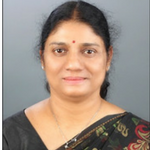
Biography:
Dr.Vidya.K.R has completed MD in Community Medicine from Kerala University of Health sciences and has done postgraduate diploma in Maternal and child health from Indira Gandhi National Open University. She has 19 years of experience in public health. She has 2 research Papers published in international journals as co-author on management of Kyasanur Forest Disease in Wayanad District. At present she is working in Ernakulam district health administration and is overseeing e-health(digitalization of health data of population), Non communicable diseases, Mental health programme, Palliative care, Leprosy eradication Programme , Emergency medical care services and programme on sustainable developmental goals.
Abstract:
Palliative care is an approach that improves the quality of life of patients and their families facing problems associated with life-threatening illness, through the prevention and relief of suffering by means of early identification and impeccable assessment and treatment of pain and other problems. In Kerala, southern state of India, funding of palliative care projects by local self-government are made mandatory and thus making its implementation uniform and successful. Ernakulam being the most advanced district in the state had implemented mental health programmmes also through palliative care networks. This research work is intended to study the operational aspects of palliative care services for betterment of the progamme in the district.
Objective: To study the process and outcome of palliative care programme in Ernakulam
Methodology – Design:-Operational research-descriptive ecological study.
Setting:- Ernakulam District palliative care units - There are 116 Primary care units-101 in rural areas and 15 Urban areas , 12 Secondary care units in major hospitals ,14 secondary units in block hospitals and 1 tertiary care unit .
Study period: - Jan 2017 – Dec 2017.
Programme process and outcome: - Total of 24,287 Cases were registered and 18,304 (75.37%; 95% CI- 74.82-75.91) attended in outpatient departments. A total of 71,178 home care services were also given. Services were provided by 162 primary nurses, 36 secondary nurses, 24 physiotherapists and 4 medical officers exclusively for the programe along with Medical officers of health institutions and 1500 trained volunteers. Long term care is given for 10,175 patients with chronic morbidities. 6 crore Indian rupees were allocated in primary care units of rural areas through respective local self-governments and INR 2,16,000 were provided by national government. Volunteer’s Training sessions lasting for 3 to 5 days, staff review meetings, Basic courses of one and half months for Doctors and nurses, disease oriented training for care givers and Palliative Day observations were the other main process activities. Implementation of video calling facility at tertiary care Centre and mental health programs at urban areas were also initiated.
Conclusion;- Satisfactory implementation of palliative programme is made possible in the district with 32 lakhs population, through the concerted and focused efforts of all sectors of society with people’s participation and making it a people owned programme.
Kyung min Kwon
Catholic University School of Medicine, Seoul, Korea
Title: The difference of ketamine use in pancreatic cancer patient between gender

Biography:
Dr. Kyung min Kwon has graduated from Yonsei college of medicine of Korea as Medical Doctor, currently working as a clinical fellow in St.Mary’s hospital family medicine department. In pursuit of Doctor of Medicine in Catholic University of Korea, College of Medicine.
Abstract:
Purpose : Up to 90% of pancreatic cancer patient suffer from neuropathic pain. In palliative care setting, pain control in a pancreatic cancer patient is one of the major goals. Ketamine is an NMDA receptor antagonist effective in neuropathic pain. Also there have been studies about the opioid-sparing effect of ketamine. This study was held in palliative care unit among pancreatic cancer patients to find out the difference of ketamine and opioid use between men and women.
Methods: Medical records of pancreatic cancer patients admitted to St.Mary’s hospital palliative care unit from 2013.1 to 2014.12 were reviewed. Total ketamine dose and total opioid dose were compared between men and women. All opioid medication were converted to OME(oral morphine equivalents).
Results: 57 men and 49 women with pancreatic cancer were on opioid and ketamine during admission. Compared to men, women required higher dose of total ketamine dose(men 123.4mg vs women 268.2mg, P=0.18), total basal opioid(men 361mg vs women 564mg, P=0.18), total PRN opioid(men 172mg vs women 286mg, P = 0.135), daily average ketamine(men 13.7 vs women 17.5, P=0.47) and daily average opioid(men 27.5 vs women 32.2, P=0.67) but it none of the variables showed statistical significance.
Conclusion: In this study, female pancreatic cancer patients required more opioid and ketamine, compared to male pancreatic cancer patients although it did not have a statistical difference. Future prospective studies about palliative use of ketamine and the difference between sex in a larger number of patients are required.
Naouma Siouta
KU Leuven University, Leuven Belgium
Title: Challenges in recruitment of palliative care patients in chronic disease: reflections from a pre-intervention phase study

Biography:
Naouma Siouta is in the last year of her PhD in the Biomedical Sciences in KU Leuven University (Belgium) specialising in palliative care in chronic heart failure (CHF) and chronic pulmonary disease (COPD). She has published 7 papers in reputed peer-reviewed journal and has participated in many international conferences with oral and poster presentations.
Abstract:
Challenges concerning the design and implementation of Palliative Care (PC) studies have been published for cancer but remain unknown for chronic disease. This study reports the difficulties faced during a PC study for patients with Chronic Heart Failure (CHF) and Chronic Obstructive Pulmonary Disease (COPD) in the University Hospital of Leuven. A before and after intervention study was performed in cardiology and pulmonology wards to investigate if the quality of life, the symptom control, the quality of care and the levels of PC integration would improve after the implementation of an Early Integrated PC intervention. Eligible patients were asked to complete the Can Help Lite Questionnaire, the POS Questionnaire and an ad-hoc questionnaire for integration of PC. Patients and their informal caregiver completed the questionnaires at the inclusion moment and after three months. Significant challenges were faced with recruitment that doubled the duration of the pre-intervention phase and led to changes in the recruitment process. The majority of eligible patients refused to participate due to physical/emotional symptoms. Some of the healthcare providers were skeptical and reluctant towards the researcher that was not a member of the treating team and the overall theme of the research. Their standard work overload may have been another adverse factor. The recruitment of PC patients for empirical PC studies in both cancer and chronic disease remains a challenging issue. In the long run, the mentality of health-care personnel towards PC should change. In the meantime, we recommend that recruitment timelines should be longer than what is usually estimated in order to avoid shortcomings, as well as time-schedule and budgetary revisions. It is also possible that being a member of the treatment team may alleviate the challenges observed.
Chadani Vaidya
Bhaktapur Cancer Hospital, Nepal
Title: End of life care and family issues and their concerned at palliative care at bhaktapur cancer hospital, Nepal
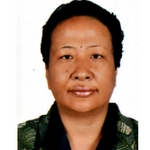
Biography:
I have completed my MBBS from People Republic of China.I have got six weeks training in International palliative care from College of Physicians and Surgeons British Columbia in Canada and one month training from NMJ Hospital Hyderabad India.I am Incharge of Palliative care unit at Bhaktapur Cancer Hospital from 2002 to date Bhaktapur, Nepal.I am survival of Breast cancer from six years and now with metastasis liver... Now on oral chemotherapy.
Abstract:
Background:
palliative care also focuses on issues beyond end of life care such as care for those with chronic illness and potentially life-threatening illness in remission. In addition end of life, care focuses on a number of issues beyond the scope of palliative care such as advance care planning which should be under taken even by healthy and young persons who may experience an unanticipated acute,life-threatening event such as an accident.
Objective:
The objective of the study was to find out the family issues and their concerns of end of life care planning at palliative care unit admitted patient.
Method:
A respective study was carried out among the family members of advanced stage cancer patients who were admitted in palliative care unit from 1st Jan to Dec 31st, 2017. 70 family councilling forms which include patient’s demography, final diagnosis with stage, and patients knowledge about their own disease, present patients palliative performance status, relevant family issues from nearest family members and planning of end of life care.
Result:
The study revealed the majority of patients were male. 70% have PPS <50%(80%) lies between
50 to 88 years with stage IV disease (80%). Most of them CA lung 80, Ca Stomach30, Ca breast 36 Ca gallbladder 24, ca head and neck 24, ca ovary 16, ca colon 24, ca pancreas18, sarcoma 24. 60% of family members prefers home for fnal hours of life and 60% want no active treatment and allow natural death. 62% patients did not know their disease as cancer due to family barriers.70% of the family member thought knowing their malignancy with increase their anxiety and hasten death.
Conclusion:
Majority of the patients 62% did not know their disese due familal barrier,2/3 of the families had many issues which need to be addressed financially, socially as well as emotionally, most of them want to take back to own home at last hour of life.As there are no good facilities to take care at the periphery, home hospices is the special need for patients care and bereavements.
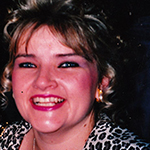
Biography:
Updating soon.. !!
Abstract:
Holistic palliative Care as a specialty continue to evolve in Australia resulting in community expectations that older people with a life-limiting illness can 'live until they die' in an atmosphere of care and support, such as residential aged care settings (Palliative Care Australia, 2008, p.1). How frequently in aged care settings do we, as nurses and health care professionals, hear the questions being asked by our colleagues, “Has the resident received their morning medication? Personal hygiene been completed? Care plan been adhered to?” But how often do we hear the question being asked, “Has the resident's spiritual needs been attended to? Has their spirit been cared for?” I would suggest that this is not always a common occurrence, and it is an important issue for all health care professionals to ponder. In this Poster presentation, I will display from a nurse’s perspective, the importance of caring for the resident’s “spirit”, during end of life care and the various ways that this may be implemented. Neglecting the spiritual needs of the elderly is particularly problematic, since research has indicated that the aged population is a highly spiritual and religious group (Weaver and Flannelly, 2001; Bearon and Koeing, 1990; Young, 1993.)
Throughout the literature, it is evident that nursing home residents do experience a number of spiritual needs, particularity in end of life care, which are often neglected due to nurses' inability to recognize and identify specific spiritual needs. A current nursing focus is the practice of holistic palliative care and all that it entails. According to Burhurt (1989), this includes the domain of care for the spirit and spirituality.
In caring for the resident's spirit, the palliative care nurse or Health Care professional attempts to create a safe, sensitive and nurturing environment in which the resident is able to contemplate and address existential and spiritual concerns. This provides the opportunity for the resident to share their story, by articulating those things in life which are important to them, give meaning to their life, and nurtures their spirit. The presence of 'being there' and holding the sacred space is imperative for the nurse or health care professional to maintain, when caring for the spirit of the resident. By using sensitive listening skills to hear the resident's story, the health care professional can assist in addressing the needs of the aged.
Tailoring to the individual's needs is an important aspect of holistic palliative care, which requires sensitive listening, a multidisciplinary team approach, so as to ensure adequate care of body, mind and spirit. Providing spiritual support is the responsibility of the aged care team and must be fulfilled in order to enhance a resident's quality of life. Tailoring a specific care plan appropriate to the individual and their family is an imperative aspect of holistic palliative aged care.
Usanee Siriuyanont
Mahidol University, Thailand
Title: Blossom on beautiful departure: Spiritual growth of family members caring terminal illness by palliative care
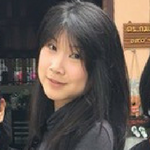
Biography:
Usanee Siriuyanont has synchronized her specialty in Economics after graduated from Chulalongkorn University with her interested in the art of living and dying major in Master of Contemplative Education, Mahidol University. Nowadays, she is the executive vice president of Cheevamitr Social Enterprise which provides awareness, education, and service in palliative care for Thai society. She perceives that healthcare service is not only curing human bodies but also healing their spirits in a meanwhile.
Abstract:
When a life encounters mournful departure, how can we have smiley face on a blood tear stain? The research aims to study spiritual growth of family members caring terminal illness by palliative care. In-depth interviewing of the major careers losing their beloved recently, a phenomenology study is the qualitative approach to comprehend each experience’s structures also meaning-making. The investigation concerns in (1) the process and factor supporting the inner growth, (2) the transition of paradigms and behaviors, and (3) the characters of spiritual growth. The data are collected by audio tapes, researcher’s journal, and subjects’ social online webpages. The finding shows the association between these issues in the boundary of their perception resulting from their paradigms. According to palliative care curators, wholeheartedly communication is the uttermost essence of progression. As purely transmission triggers the subjects to contemplate in their relationships among terminal patients, eventually the new meaning as well as value of spending time in their lives emerged. Consequently, their conceptual frameworks are broadened to be obviously positive thinking and pleasured manners. Lessons learned in the significant caregivers' experiences appears in palliative care treatment, deeply understanding to each other can cut corners on caregiver bereavement comparing the traumatic theories. Apart from acceptance of beloved’s desires by profoundly conceived, all subjects confidently nurse their hearts till the last second, afterward courageous to share their bereavement experience for social benefits.
Ingrid See
Clinical Nurse Specialist, Canada
Title: Enhancing end of life discussions: A guide to practical tips when using translated materials
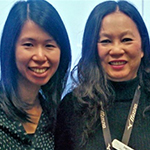
Biography:
Ingrid See is a Clinical Nurse Specialist with the Vancouver Home Hospice Palliative Care Service in BC, Canada. She started her home care nursing career in Massachusetts before returning home to Vancouver to specialize in palliative care. She completed her master’s in education in 2001 with a focus on teaching health care professionals in providing culturally competent care. Ingrid is currently the Vancouver lead in implementing the Serious Illness Conversation Guide project across home health.
Sarah Lau is a home care nurse who is currently working as an educator for the Serious Illness Conversation Guide implementation in Vancouver home health. She has worked as a home care nurse for several years and has a specialty in palliative care.
Abstract:
Sensitive topics in palliative care, such as goals of care and advance care planning conversations, can be challenging for health care professionals (HCP) to discuss when patients and families speak another language. HCP often resort to using translated materials to assist in these discussions. Ariadne Labs in Boston has developed the Serious Illness Conversation Guide (SICG) which guides HCP in having early conversations so that patient’s wishes, values, and beliefs are known earlier to the health care team. In Vancouver Coastal Health, the guide has been translated into 4 main languages: Chinese, Punjabi, Farsi, and Arabic. With direct translation into English, it has been noted that several of the questions had lost its original meaning and intent as some words cannot be translated directly into a language, therefore, the translators chose a word that may or may not reflect the original meaning and intention. Translation is not a one step process; it involves translating the materials into a different language, back translating to see if the meaning is maintained, reviewing by interpreters/people who speak the language, and then tested by clinicians. Given the sensitivity of topics discussed in the SICG, it is important that this is done correctly. The goal of this presentation is to share with HCP the challenges of translating patient materials directly into second languages. Using the Serious Illness Conversation Guide as an example, the barriers to translation will be identified along with learning helpful processes which will assist HCP to create more culturally appropriate materials.
Ching-Wen Cheng
Louisiana State University, USA
Title: The role of animal-assisted therapy in mental and physical functioning in older adults

Biography:
Ching-Wen Cheng currently is a master’s student in Kinesiology with a concentration in Clinical Exercise Physiology at Louisiana State University. She has worked with older individuals almost three years in Cathay General Hospital as a respiratory therapist in Taiwan. Meanwhile, she has also volunteered for animal-assisted therapy with her therapy dog in geriatric institutions for three years. She continues to conduct research regarding geriatric care and physical activities for her master’s degree.
Abstract:
The worldwide geriatric population rises constantly. The care for older adults must be prioritized, especially due to aging’s effects on degeneration and dysregulation of physical and psychological function. Animal-assisted therapy (AAT) is a nonpharmacological treatment that can alleviate the symptoms of aging and assist older adults functioning. The purpose of the present review is to analyze the role of AAT in geriatric functioning by evaluating both the mental and physical outcomes after intervention. Seventeen relevant studies were collected from PubMed, Wiley Online Library, and International Peer-Reviewed and Open Acess Journal for the Nursing Specialists. Subjects within these studies were above 65 years of age regardless of the health or patients. Inclusion criteria were either psychological or physiological data on older individuals in either institutions or the community. We further evaluated each effect and classified each into specific geriatric functioning. The findings demonstrate that there is a consensus that AAT improves psychological function in older populations, including better cognitive function, stabilization of mental status, and increased socialization. Additionally, AAT also benefits physiological function in aging. Although the deterioration of organ function with aging cannot be eliminated, the potential improvements from AAT were seen in muscle, bone, cardiovascular, pulmonary, brain, and neuronal systems. We concluded that AAT interventions can elicit positive effects, maintaining psychological and physiological functioning as a result of improving the quality of life of older adults.
Lynn Adams
Memorial Sloan Kettering Cancer Center, USA
Title: Educating oncology nurse practitioners to provide primary palliative care

Biography:
Lynn Adams graduated with a MSN in oncology nursing from Columbia University, and a post master’s certificate from Stony Brook University. She has over 25 years experience as an oncology NP, caring for oncology patients at varios stages of illness, as well as hospice experience. She is currently enrolled in the palliative care track of the DNP program at George Washington University.
Abstract:
Approximately 1.66 million Americans are diagnosed with cancer each year and another 589,430 died from the disease. As treatment options expand, patients are living longer with worsening symptoms and an increased illness burden and are ideal candidates for palliative care. Palliative care is delivered by clinicians with specialty training and a focus on improving the quality of life for patients with serious illnesses. A number of major organizations recommend the integration of palliative care into comprehensive cancer care including The American Society of Clinical Oncology (ASCO) and The National Comprehensive Cancer Network (NCCN). With an advanced education and scope of practice, a holistic orientation, and based on evidence of providing safe and effective care, nurse practitioners (NPs) are well positioned to improve access to palliative care; yet, many lack basic content knowledge of palliative care and do not have competencies in the provision of its care. This study used valid and reliable instruments and a one-group pre and post test design to measure differences in NPs’ knowledge of and self-rated competence in the provision of basic palliative care before and after a formal educational program. The content, drawn from the End of Life Nursing Education Consortium’s (ELNEC) APRN curriculum, was delivered in one 8-hour session, by an experienced NP currently enrolled in the palliative care track of a DNP program. The study was conducted with nurse practitioners practicing in the regional network sites of an NCI-designated comprehensive cancer center.

Biography:
Emily is a board certified family nurse practitioner. She has worked at Mayo Clinic caring for geriatric patients in skilled nursing facilities and in hospice care for pediatric and adult patients in inpatient and outpatient settings. She holds dual appointments as Instructor in Medicine and Nursing, College of Medicine at Mayo Clinic. She has presented regionally and nationally of palliative care topics.
Abstract:
The integration of palliative care into the home that would otherwise typically be performed in the hospital empowers patients and families by allowing for more choices when facing difficult end of life decisions. Compassionate extubation, also known as palliative extubation, is the withdrawal of mechanical ventilation. This is performed to alleviate suffering while avoiding the prolongation of death. Compassionate extubation in a non-ICU setting requires seamless collaboration amongst the interdisciplinary team. The logistics of such a process generally requires an inpatient setting. In the case of a 27 year old patient with cerebral palsy, multiple medical complications resulted in ventilator dependence and a subsequent decline in quality of life, ultimately prompting hospice enrollment. Discussion surrounding end-of-life issues, particularly involving the withdrawal of mechanical ventilation, can be especially difficult if the patient's family are in unfamiliar surroundings. In an effort to meet his mother’s goal for compassionate extubation at home, the Mayo Clinic Hospice team formulated a new procedural guideline to facilitate the process. Through collaboration with physicians, nurse practitioners, nurses, pharmacists, respiratory therapists, social workers and home infusion specialists, the patient was removed from mechanical ventilation and died peacefully at home surrounded by his family. This outcome resulted in an high level of satisfaction for the patient’s family and helped bring them peace as they began their journey through grieving the loss of their loved one. Team debriefing after the case contributed to further refinement of the process and the hospice team can now confidently offer compassionate extubation at home as an option for patients and families in the future.
Timothy G. Ihrig
Ihrig MD & Associates, USA
Title: Communities Learning from Communities: Lessons from Tanzania

Biography:
Dr. Ihrig is the CMO of Crossroads Hospice & Palliative Care and CEO of Ihrig MD & Associates. He is internationally recognized for combining clinical and administrative experience to system design around population health management, care coordination and care delivery for the most vulnerable population, is an expert in understanding risk as applied to healthcare contractual entities, micro- and macro- healthcare economics, population health, regulatory compliance from a system perspective and the interaction of all three. He served as the medical director for Palliative Medicine at the Trinity Regional Medical Center within the Unity Point Health System and on their Accountable Care Organization Development Board of Managers. His role was the conceptualization, design, integration, implementation and expansion of palliative medicine within a Pioneer ACO through the Centers for Medicaid and Medicare Innovation Project. His efforts were seminal in Unity Point Heath being granted the 2013 Circle of Life Award by the American Hospital Association. He has given a TED talk which has over 1.7 million views globally, has been featured on National Public Radio’s, “All Things Considered”, is endorsed by the Center to Advance of Palliative Care as a national level clinician-educator and co-authored, Palliative Care: Symptom Management.
Abstract:
Dr. Timothy G. Ihrig, MD, examines the influence of trans-cultural experiences on the practice and definition of what palliative care can and should be in contemporary United States health care system. He explores the transformational process of engaging internationally as a physician in some of the poorest and most rural areas of Africa, on his practice of palliative and hospice care in the United States and how lessons from these outside communities can empower providers to understand human connectivity beyond medical educational opportunities in the US.
Timothy G. Ihrig
Ihrig MD & Associates, USA
Title: Re-Creating community - Owning the mission of true palliative care

Biography:
Dr. Ihrig is the CMO of Crossroads Hospice & Palliative Care and CEO of Ihrig MD & Associates. He is internationally recognized for combining clinical and administrative experience to system design around population health management, care coordination and care delivery for the most vulnerable population, is an expert in understanding risk as applied to healthcare contractual entities, micro- and macro- healthcare economics, population health, regulatory compliance from a system perspective and the interaction of all three. He served as the medical director for Palliative Medicine at the Trinity Regional Medical Center within the Unity Point Health System and on their Accountable Care Organization Development Board of Managers. His role was the conceptualization, design, integration, implementation and expansion of palliative medicine within a Pioneer ACO through the Centers for Medicaid and Medicare Innovation Project. His efforts were seminal in Unity Point Heath being granted the 2013 Circle of Life Award by the American Hospital Association. He has given a TED talk which has over 1.7 million views globally, has been featured on National Public Radio’s, “All Things Considered”, is endorsed by the Center to Advance of Palliative Care as a national level clinician-educator and co-authored, Palliative Care: Symptom Management.
Abstract:
Dr. Timothy G. Ihrig, MD, examines the influence of cultural behaviors and beliefs on the development, delivery, and future of healthcare. Healthcare is a rapidly changing and challenging profession. As providers we are facing some of the greatest obstacles in our history. Ethical challenges abound at the intersection of care, education, public perception, economics, policy and technology. It is increasingly easy to lose sight of what is important, to forget who we are, what it means to remain patient centric and to define our fiduciary responsibility. How do we navigate amongst so many competing platforms? Drawing parallels between the current paradigm of segmented care delivery with the loss of "community" as expressed a century ago, he will reveal his thoughts on how we can evolve back to a higher sense of connectivity. Through this, he uncovers that shifting our perspective of how life can be lived; we become able to connect to a greater sense of humanity beyond our own and can truly impact care and enhance relationships with patients, families, each other and ourselves; and can move towards truly caring for another human being. Challenging our perception empowers the translation of healthcare into care.
Anna Klarare
Ersta Sköndal Bräcke University College, Sweden
Title: Team Function in Specialist Palliative Home Care – patients’, families’ and health care professionals’ perspectives
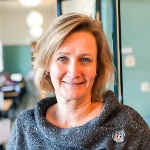
Biography:
Anna Klarare completed her PhD in Medical Science at Karolinska Institutet in June 2016. She is a registered nurse with 20 years clinical experience of specialist palliative home care. She has a Master’s in Nursing Education and is presently senior lecturer in palliative care at Ersta Sköndal Bräcke University College in Stockholm, Sweden. She has five published papers, three more submitted, and is presently pursuing post-doctoral studies. Klarare is highly appreciated as workshop leader in continuing palliative care education nationally in clinical settings.
Abstract:
Persons with life-threatening illness are increasingly being cared for and dying at home. Palliative care strives to cater to multiple dimensions in persons, such as physical, psychosocial and spiritual or existential, and meeting these needs in patients and families requires multiple competencies. Palliative care organizations like the WHO and the EAPC, as well as Swedish national guidelines, propose organization and delivery of care in teamwork models, however, teamwork is complex and in health care, team members often vary from shift to shift. The overall aim of the project was to explore perspectives of team function in specialist palliative care teams, among health care professionals, patients and families, in order to gain a deeper knowledge of structures and relationships so as to optimize team functioning. Results of the studies are: (I) health care professionals report that competence, communication and organization are crucial components of teamwork in specialist palliative homecare, (II) patients and families report that they experience security and continuity of care due to 24/7 availability, flexibility and sensitivity to changing needs and a collective team approach that fostered experiences of continuity of care, and (III) that the 77 participating teams in the Swedish context all have a core of registered nurses, physicians and social workers, while physiotherapists and occupational therapists were present in most teams. The explored teams have existed from 7-21 years, are foremost of medium size and tend to work in an integrated manner, rather than in parallel. Positive associations were found between team maturity and team effectiveness. Based on our findings, clarification of team goals and professional roles together with development of psychosocial traits and team processes should be prioritized in clinical settings. Patients and families will most likely experience that their needs are met and feel greater satisfaction with care provided by mature teams.
Julia Ambler
Umduduzi – Hospice Care for Children, SouthAfrica
Title: Through the introduction of palliative care, quality of life has improved and the course of illness has been positively influenced thus leading to an increase in referrals
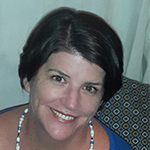
Biography:
Julia graduated from University of Cape Town with her MBChB in 1998. She trained and worked as a general practitioner and a children’s hospice doctor at Helen and Douglas Houses in Oxford, UK for 6 years. On returning to Durban, Julia has continued her passion for paediatric palliative care and is Deputy Director of Umduduzi – Hospice Care for Children. Through this NPO she consults in children’s palliative care and trains health professionals and medical students in the Department of Paediatrics, UKZN.
Abstract:
Palliative care should be provided from the point of diagnosis and beyond death. However within the South African context, palliative care is poorly understood. Many practitioners believe it to be synonymous with end of life care or ‘giving up’ and are thus reluctant to refer early to the team. Through our work we have come to realise that this misunderstanding is common and is not specific to any discipline . In addition to this, palliative care is not a recognised speciality in South Africa hence there are limited numbers of health professionals trained in palliative care. As they cannot specialise in the field, there are no government posts. Currently almost all palliative care services are offered by the not-for-profit / non-governmental sectors. (NPO/NGO). The authors have compiled a retrospective case study analysis of their patient base. They have explored how presenting palliative care cases to health care professionals at academic meetings has led to increased referrals. Referrals are also being made earlier in the course of illness. Health care professionals, when they have seen the benefits of palliative care, are more inclined to recognise the need for a palliative care approach and refer earlier. Through their interactions with the palliative care team, health care professionals have been empowered and are more willing to provide palliative care themselves, accessing the team for telephonic support. Discussing and presenting such case studies with and to health care professionals improves referrals and thus improves access to palliative care.
Michelle Crowell
Alabama Hospice & Palliative Care Organization, USA
Title: Confronting racial disparities in end of life care

Biography:
Michelle Crowell is the President of Alabama Hospice & Palliative Care Organization and has been in the nursing field for 25 years with a focus in hospice for the last 15 years. She is currently the Regional QAPI coordinator for LHC Group Inc., serving over the states of Alabama and Idaho and has served in many capacities in hospice including most recently State Administrator. Her passion is serving in the hospice & end of care life arena. She has authored two books, “What Do You See?” which focuses on documentation for hospice eligibility, & “It’s Not About Dying, It’s
About Living, Making Difficult Decisions in the Name of Love,” dealing with end of life choices in healthcare. As everyone one day will have to face end of life issues, Michelle’s goal is families will have the necessary information to make those decisions about their lives easier to bear.
Abstract:
In this day and age, one would not expect to find disparities in any form of health care. This, however, is not the case. Research has proven that even in the 21st century that there is a lack of hospice and end of life care services provided and received by minority populations. It is estimated that in the year 2050 there will be 439 million African Americans and other minorities that are over the age of 65. This percentage of 42% is more than double the 20% noted in 2000. In the United States, African Americans currently make up 12% of the population. Out of this population, less than 10% have utilized hospice and end of life services, while 80% of Caucasian races make up 80% of utilized services. It has also been shown that while 40% of Caucasian Americans over age 70 have advance directives, only 16% of African Americans have done so. Why is this? What continues to be the cause of minority races receiving less service than is available? How can we address and bring to the forefront these issues? How can minorities be better informed of services available and myths dispelled so that quality of care revolving around end of life can be increased? The answer to these questions may not only lie in the misinformation of what hospice and end of life services are, but also in the history of past healthcare issues relating to care given to minorities. One thing is for sure, it is up to us as not only a hospice and palliative care community but also as healthcare in general to deal head on with the barriers and concerns that prevent minorities from being provided quality care.
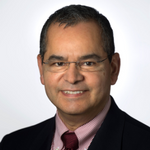
Biography:
Sebastian Sepulveda has been a doctor for almost 30 years. After med school at the University of Chili, he worked in emergency medicine for a couple of years, and a few years later, he was a professor of medicine for three years in Georgia. Since 2005, he has been in private practice, and now specializes in hospital medicine, kidney diseases, and caring for the terminally ill.
Abstract:
Updating Shortly...!!
Semoon Chang
University of South Alabama, USA
Title: Desperate needs for compassion from oncologists
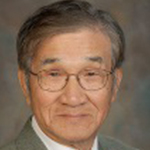
Biography:
Semoon Chang is a retired professor of economics from the University of South Alabama where he and his wife, Youngshin Chang, established an endowment for humanitarian service. He served as president of the Homeless Coalition of Mobile, president of the Planning Council of the United Way of Southwest Alabama, and president of the Association for University Business and Economic Research. Currently, he is a columnist of the daily Korea Times and a panelist of the quarterly World Economic Survey sponsored by the University of Munich in Germany.
Abstract:
My wife passed away from pancreatic cancer, five years after the Whipple surgery and desperate efforts of treatment for two years at the MS Anderson in Houston and Southern Cancer Center in Mobile, Alabama. This is an actual, and in-depth, case story of our experience in our interaction with oncologists during the last days of her life. Conclusion of the paper is that we felt no compassion from our oncologists. Compassion does not mean being nice or sweet-talking to patients. Compassion means to give patients medicine before they need it, explain them in detail what the future may hold, and guide them step by step so that they can leave this world with no pain, peace of mind, and dignity. We never received one.
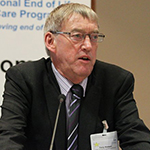
Biography:
Tony is Vice-chair of trustees of St Catherine’s Hospice, Preston, Lancashire. He is also North West Local Champion for the Dying Matters Coalition, a national group of professionals and lay people committed to furthering a broad public discussion about death and dying, and a member of the Lancaster Compassionate Communities project. He is a lay member of the NHS End of Life Care National Programme Board, which monitors all EoLC projects and initiatives nationally. As a member of the Independent Review Panel for the Liverpool Care Pathway he co-wrote the report and helped to monitor the implementation of the Leadership Alliance’s guidelines. He was a lay member of the RCP Audit of deaths in Acute Hospitals. He is involved in a number of research projects relating to End of Life Care. He speaks and writes on end of life care issues, and campaigns for better communication between professionals and patients. He has broadcast on television and local and national radio on end of life care issues.
Abstract:
Patients are people too. I am involved in EoLC because of my personal experience caring for my son during his terminal illness. I dream we can work towards a system of fully integrated, holistic care for those near death. This will involve a culture-change in the relationship between medical professionals and patients/carers, in line with the patient-centred philosophy embodied in the NHS Constitution, and with the recommendations of the Francis Report, the Neuberger Report, “One Chance to Get it Right’’, and the NICE guidelines 2016, seeing patient and professional in a partnership, defining and meeting the perceived needs of the patient. Communication will be central to this development. Professionals and patients must evolve a common language comprehensible to both, and an atmosphere in which patients and carers feel empowered to become involved in the decision-making process, and thus to take back some control of their condition and its management. Great sensitivity on the part of the professionals as to the emotional effects of their discussions on patients will be needed along with an understanding that everyone is an individual, with specific and personal needs, and that “one size fits all,” will not meet their needs.
Cheryl Ann Thaxton
George Washington University, USA
Title: A retrospective chart review: Diagnosis and treatment of depression in patients with breast cancer
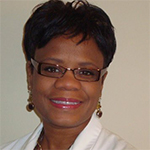
Biography:
Cheryl Ann Thaxton has completed her Master’s Degree in Nursing from George Washington University, Washington, DC and is nearing completion of Doctoral studies at George Washington University. She is a Nurse Practitioner at the Unvertiy of Texas Southwestern Medical Center, Dallas, Texas. She has published more than 15 papers in reputed journals as well as textbooks and has been serving as an editorial review member for the Journal of Hospice and PalliativeNursing.
Abstract:
Background: One issue related to breast cancer diagnosis and treatment is the risk of depression. Researchers need to explore better ways to identify depression in minority populations particularly in those with breast cancer.
Objectives: The purpose of this study is to examine ethnic differences and commonalities in the method of diagnosis and treatment of depression female breast cancer patients.
Specific Aims: The study aims to examine differences and similarities in the method of diagnosis and treatment of depression in Caucasian, Latino, and African American breast cancer patients.
Questions/Hypothesis: 1. Does the method of diagnosis and treatment of depression differ based on ethnicity in an outpatient palliative care clinic?
Hypothesis: Method of diagnosis and treatment will differ in the Latino and African American patients as compared to Caucasian patients; 2. Are minority groups more likely to elect non-pharmacological treatment vs. pharmacological treatment for depression than Caucasians?
Hypothesis: Minority groups are more likely to elect non-pharmacological treatment vs. pharmacological for depression than Caucasians.
Methods: This retrospective chart review will utilize the Chi-Square Analysis to compare the findings from the patient data. The study will take place at a large academic medical center in an urban setting; the patient population will include female patients, ages 30 years to 65 years, who have confirmed diagnosis of breast cancer (newly diagnosed or relapsed) and have been seen in the outpatient palliative care clinic setting from September 2014 through July 2017.
Demographics/variables: Age (mean/range); Education (mean/range); Marital Status (Single/Married/Divorced/Unknown); Employment status: full-time, part time, unemployed; Health insurance (Medicare/Medicaid/Private/None); Disease stage (I/II/III/IV/Unknown); Breast cancer procedure (lumpectomy/mastectomy/chemotherapy/Radiation); Positive for depression (yes/no); Negative for depression (yes/no); Treatment for depression (pharmacologic/non-pharmacologic/ none); Associated symptoms (Fatigue/anxiety/pain); Follow up (Improvement in depression screening scores).
